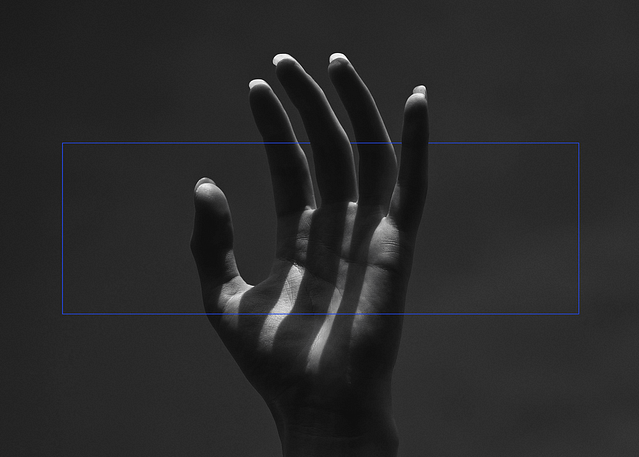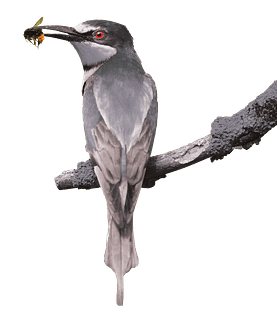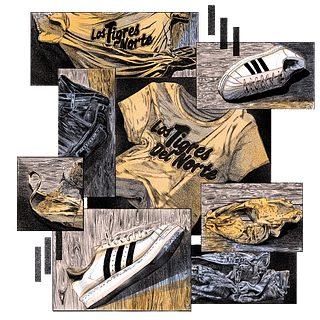
Back when we were at university she had realized that she had a septate hymen and that all the abortive sexual experiences that she had had until this point had indeed been abortive because of her, because of this biological discrepancy between her body and the bodies of other girls. She had figured this out when she was living alone for a couple of weeks during the long summer holidays, camping out in my room, which I’d continued to rent as I was too lazy to move my things and wealthy enough that I didn’t have to. She’d stayed behind in order to study ahead for the next year, she wanted to gain an advantage, and as I was visiting my uncle in California, I’d said she could use it. She hadn’t been grateful. My room, she said, was anything but an ideal place for quests of ascetic and intellectual purity. I’d made no effort to clean anything up and on the first day she had found tiny mounds of cigarette ash, stray underwear stained with menstrual blood, and a battered poster of Ayn Rand’s The Fountainhead, which I’d attempted to hide when I’d gotten sick of explaining to people that I wasn’t a libertarian. Nevertheless, she had moved her books in, set up her computer, binged on Modafinil, and been ready to tackle Kripke. Only instead of opening Naming and Necessity she had begun to think about the boy that she’d been seeing and her inability to have sex with him, which was really her inability to have sex with anyone ever. She had tried, but it had never worked. Nothing was able to fit inside her. And in the given circumstances, usually blurred by alcohol or whatever drug she’d been taking that evening, she had swept the failure from her mind and attributed the error to the boy and not herself. She had told herself that they were slow and clumsy. That they were stupid and inelegant. That they didn’t know what they wanted and by the time they did it was already too late. But she had always secretly known that something else was wrong: that something down there was wrong and the boy had been too drunk or confused to figure out precisely what it was, and that even if he did, would not be able to name it, and so had rolled over, too wasted to persevere. Of course, back then she hadn’t understood what the problem was either. She’d had an ingrained fear of her own body from an early age, a history of dysmorphia, and in early teenage conversations about masturbation had kept completely silent, save for the sole confession that she’d never even looked at her own vagina, much less touched it. She’d never even used a tampon. Until now her youth had progressed in much the same fashion. She had been discontented, dissatisfied. She had been plagued by a vague sense that something was wrong and that whatever it was prevented her from being like everybody else. She couldn’t say what it was about that particular evening in my room that had compelled her to at last face the problem, but with her books still lying unopened in front of her, she had reached over to her laptop and googled images of female genitalia. She said she had felt a massive rush, unrelated to the concentration drugs she’d just taken, because she felt like she was facing down some nameless childhood phobia and finally achieving some kind of identity as a woman, rather than as an ugly, sexless girl.
The airport café in which we had discovered one another — me on one of my many layovers and her about to take her first international flight in over a decade –– was convulsing. Other travelers whisked by our table, their faces broadcasting exhaustion. A new announcement was ringing out. We waited to make sure it had nothing to do with us. Next she said that she realized what she had said before sounded slightly confused, as if it were that easy to pin down what placed a person in their category, as if it just came down to bodies or their actions, but she’d used some hyperbolic phrases in order to stress just how significant this moment was to her developing adult life. Wait for it, she said, it gets even more significant and accrues some really important symbolism.
After this first epiphany, with its basis in her adolescent sexual experiences, or lack thereof, she had launched herself into the next of a series of revelations that would add up to some grand coming-of-age event that would define her sexual (and philosophical) outlook for the next few years. She had understood that there was some kind of barrier inside her, something hard and inflexible that closed her off from other people. With this in mind it hadn’t taken her long to narrow down her search. She had scanned images of hymens and researched extensively on forums. The images, she said, made her feel nauseous. There were so many of them, so many ways in which nature might take a wrong turn. When it came to identifying the problem, all at once she had a set of options. At this point in time she hadn’t yet been ready to embark upon a physical examination, and so instead she had used her powers of reason. She had been menstruating without difficulty for years, so there had to be some kind of passageway. There had been times, she thought, when sex had almost worked. It had been painful, even agonizing, but she had had the sense of being on a precipice, of something almost slipping in, only neither she nor her partner had had the strength to endure it. Having reasoned her way to this premise, she soon identified the most likely culprit — the septate hymen. She said she felt drawn to it from the beginning because it was clearly the most deformed. An abnormal strand of tissue running from one side of the vaginal cavity to the other, which varied in thickness depending on the vagina in question. In each case the strand created two little holes. She said that it had looked tragic. She said that it had looked like a little nose. Sitting in my room, alone for the first moment in months, with all this time stretching before her, so much youth still left to manage, she had realized that there was only one thing she could do. She said she’d glanced towards my Fountainhead poster, which she’d stuck back on the wall because it reminded her of me and how I liked to hide myself away from other people. She felt as if she might take matters into her own hands, maybe literally. She said that at this stage, although she suspected she had identified the problem she still could not bring herself to investigate her own body, that the prospect of doing so was something that made her feel both nauseous and fearful. She said she sat there for a long time, chain-smoking and wondering what to do next. Eventually she’d left, went to the shop, bought a bottle of vodka, some beers, too, and then returned to my room. Next she had taken off all of her clothes. There were no mirrors in your room, she said, and she’d been glad of that. She’d sat on the floor and proceeded to drink most of the vodka, in order to battle the other chemicals currently coursing through her system, which would be less than conducive to what she was planning to do. At some point, she said, the alcohol and cognitive enhancers had blended together and the result was a sense of pure lucidity, a kind of awful serenity the like of which she’d never felt before and would never feel again. She could finally bring herself (and now it felt less like “bringing herself” to do anything, and more like the next logical event, everything moving very purely in a chain of rationality and purpose) to touch her own genitalia. She’d rolled over, stared at my ceiling, reached down, and inserted a finger into the hole between her legs. She said not looking made it easier. She said she was able to get one finger in, down to the second knuckle, but was unable to proceed any further. She had felt the presence of a ring that prevented the entry of the rest of her finger, and trying again from a different angle, she had identified another. There was a large fleshy strand that created two separate openings inside her. She said that she had been right all along, about the septate hymen.
Then she said she hoped what happened next wouldn’t bother me, because it had all felt so natural and unavoidable, as if once she’d figured out the first thing, she couldn’t prevent herself from doing the thing that followed, the thing she was going to tell me about. Following this understanding of the rightness of her initial hunch, she had attempted to insert a second finger, thinking that she could stretch the membrane and perhaps loosen it to the point where she could manage a third. She said that this had failed and so instead she had tried a sawing motion with the first finger, moving it slowly from side to side, and that the pain was indescribable. She had carried on in this way for some time, drinking to dull the sensation, for how long she wasn’t sure, until she had noticed a change, that the hymen was indeed slightly looser, sorer, and a little worn down. She had persisted. Until, she said, she had reached with her other hand for her phone, also on the floor, checked the time, and realized that at least an hour had elapsed between the present moment and the initial discovery, and that her method was perhaps slow and ineffectual. And she had remembered the books still lying unopened on my desk and decided to get on with things. She said she hoped what happened next wouldn’t gross me out. She said on realizing that the sawing motion was futile, given the timespan of her drunkenness and her impending need to read Naming and Necessity, she’d swapped the sawing method (which stretched) for a clawing method (which cut). She had gotten a finger and a thumb in each ring opening and curved them back in, nails against the hymen, and started pinching and tearing. She said she hadn’t realized it was going to be so thick. She said that whenever a small piece of flesh caved in still more would present itself to her. She said the feeling was both incredible and strange. That the fact that she bit her nails so frequently made this process intensely painful, everything catching on everything else. At one point she had begun to weep. She said she had nearly abandoned the attempt, that she had thought it could go on forever. But then it had given way all of a sudden, so quickly, almost with a snap, and her nails had met one another, her finger and thumb clasped, and there was a huge chasm where before there had been only the tiniest of openings. She said she’d been able to feel the separate strands of the snapped hymen hanging down on each side. Eventually, she said, she removed her hand and sat up, and saw the blood staining the green carpet between her legs. She’d realized, in that instant, as the final and biggest epiphany of a night full of epiphanies, that she’d finally achieved the possibility of connection. She said she had felt glad. She said she had felt as if at last she might become a member of the crowd, that great anonymous throng. She said she had felt like a peasant drowsing in her field, listening to the sound of distant dancing.
Then she said that she hoped I didn’t mind that this had all happened in my room. She said she knew now why it had to have been there. There had been something loose and primordial about my room that had allowed her to throw off a certain rigidity — she couldn’t have managed it alone. It was the mess, or my nature, which was permissive. She said I’d let anyone do anything to me and the room had conveyed that. It was suggestive. It said: go on. And so she had. She said she had wondered how long to wait before telling me, or indeed, if she would ever tell me. She said she wished I could know what it had been like but that words would never capture the mind-rapturing and totally entrancing awe she’d felt, as she sat there, bleeding on my carpet. She said that one of her first thoughts had been about how awful it would be to have to clean it all up. My room was so messy that she actually considered leaving it — she didn’t think I’d notice.
In fact, she hadn’t cleaned it up, and I had noticed. And I’d noticed other things too during the years before we’d set off on our different directions. After that summer, she had grown quite fond of my room, which everyone in our college knew I never locked, and went on to use it for other assignments, when I was in the library or visiting my uncle on one of his trips to the city.
She never did get around to reading that book. Instead she had reached a kind of compromise with the world. She saw that everything she had valued until then was abstract, inessential. It had been built on false premises. Now she drew her strength from the reality that lay before her. After graduation she had plunged directly into life. Just like everybody else, she had become a house full of people — a husband, a son, three daughters, two dogs — and freighted with neighborly concerns.
She laughed as she said this, and I must have looked confused, because next she said she hadn’t meant me. Though there had been moments when we felt so close as to have almost been the same person, we were in fact different kinds of things — all that time we had simply been occupying the same space. Events since had proven it. She pointed at my life. She briefly outlined the contours of my history: a series of partners, international moves, and fluctuating allegiances … She said that I was more like one of those hotels that spring up at the edges of badly managed airports, for example like this one, full of rooms, with people passing through them quickly.


